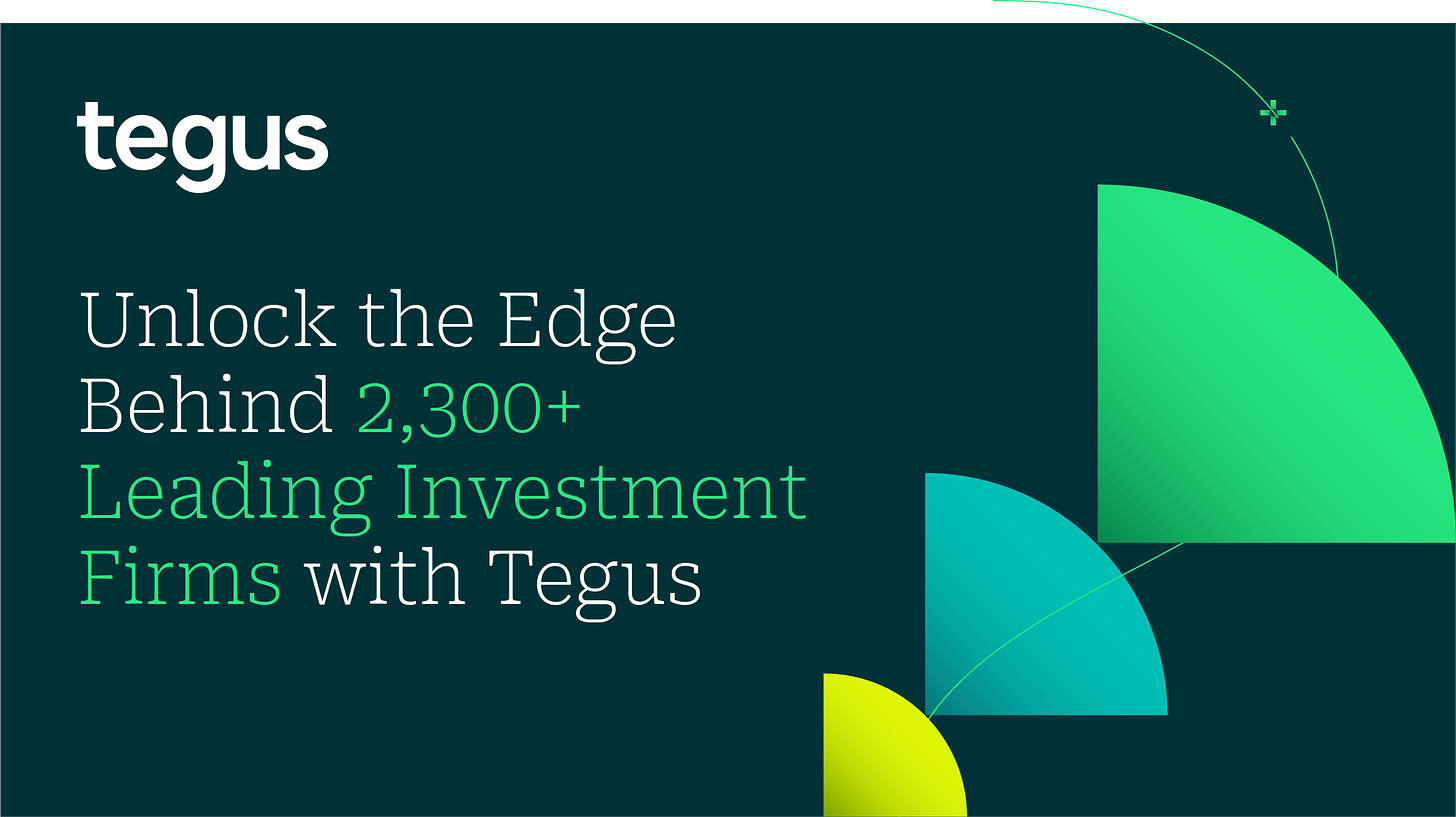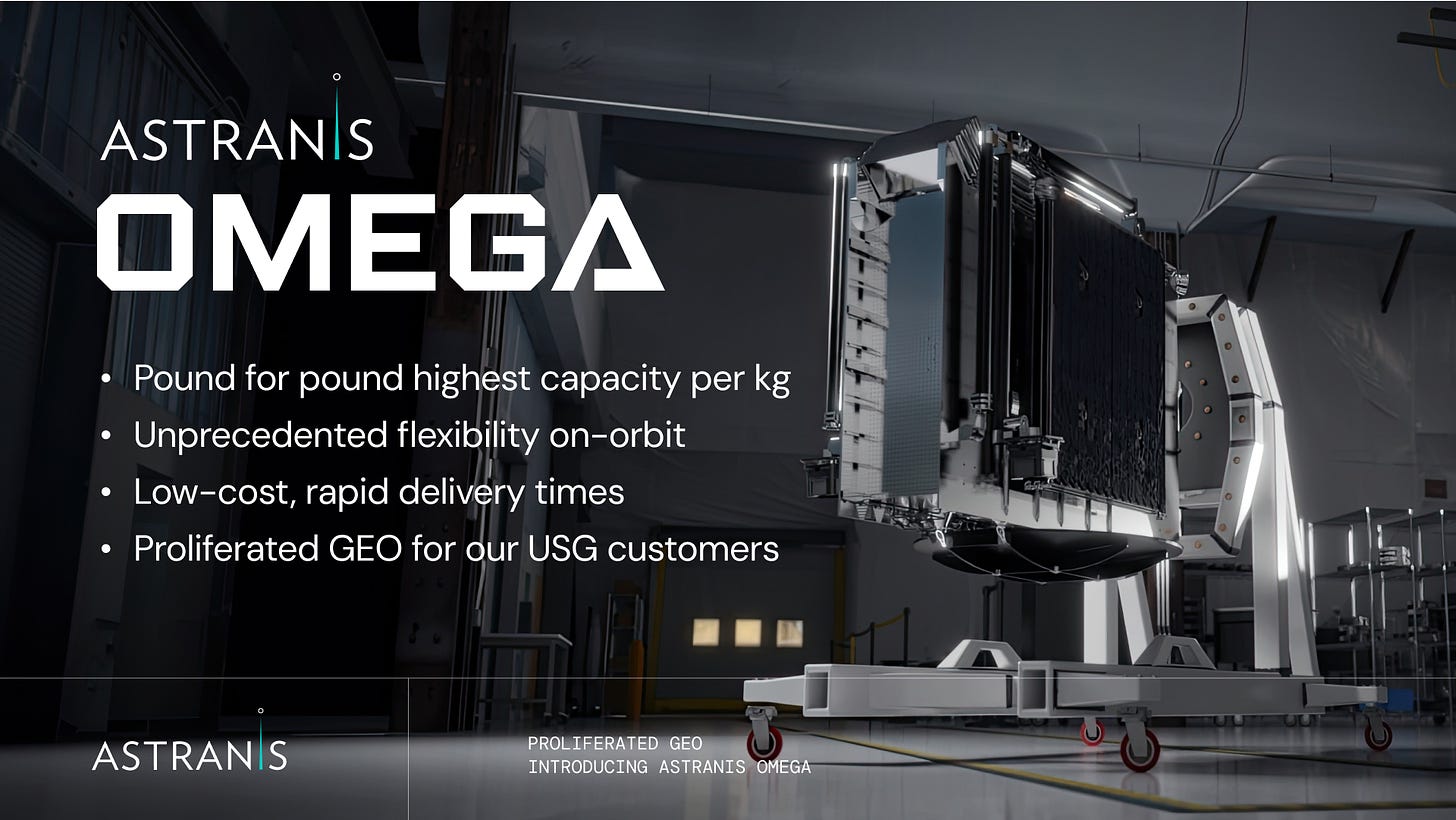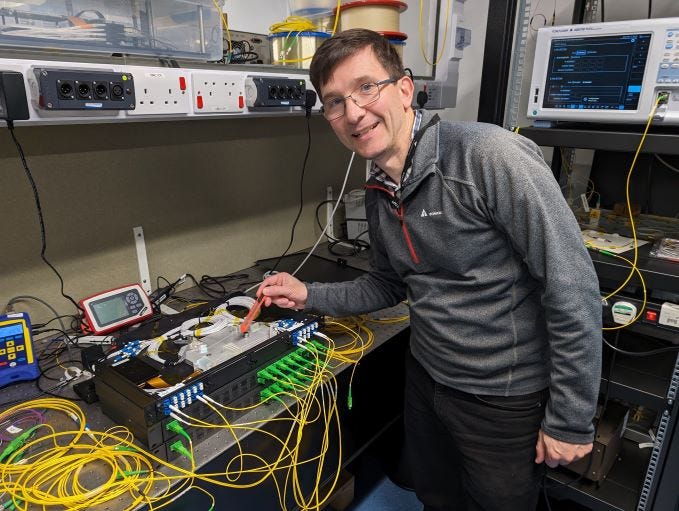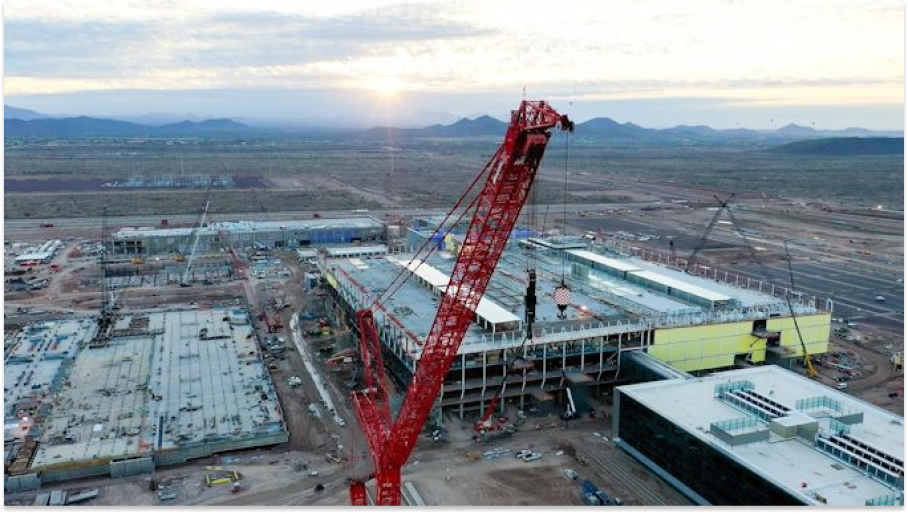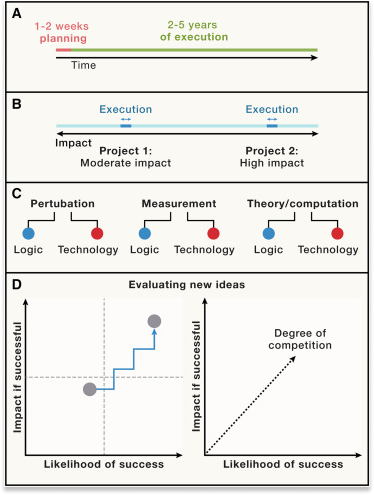

Weekly Dose of Optimism #89
source link: https://www.notboring.co/p/weekly-dose-of-optimism-89
Go to the source link to view the article. You can view the picture content, updated content and better typesetting reading experience. If the link is broken, please click the button below to view the snapshot at that time.
Weekly Dose of Optimism #89
Mars, Astranis Omega, High Speed Broadband, TSMC, Orchid, Choosing Problems
Hi friends 👋,
Happy Friday and welcome back to our 89th Weekly Dose of Optimism.
After a weird week of weather events (earthquakes and eclipses), things are starting to normalize again. Normalization is a good thing, because around here a normal week usually means that at least five big, future-shaping things have happened. This week was no exception.
Let’s get to it.
Today’s Weekly Dose is brought to you by… Tegus
Ever wonder how the top investment firms stay ahead? Enter Tegus.
The only platform that combines qualitative, expert insights with company-specific KPIs, metrics and data points, paving a new way for investors to more easily create comparables and benchmarks, automatically update their models with the most accurate and in-depth data in the world, and instantly get answers to their pressing questions on public and private companies by structuring unstructured data with the help of AI. To top it off, Tegus just announced they will soon provide all users with access to broker and independent research.Opt for Tegus and gain access to a wealth of investment research resources unmatched in scope and detail. Experience the difference that comprehensive, precise, and quickly accessible information makes in the investment world. Explore Tegus today and experience the platform that has become the preferred choice for the world's best investors.
From Elon on X
Earlier this week, Elon gave an update to SpaceX employees on his latest plans for colonizing Mars. Making humanity multi-planetary has always been part of the endgame for Elon and SpaceX, but those plans are starting to seem more and more likely, and Elon is starting to fill out his vision with more details.
Elon now plans to colonize Mars with 1 million settlers and to do so by making trips from earth to Mars as routine as cross-country flights are today. This would really only be possible if Starship continues to hit its goals and becomes at least partially reusable…and who are we to say that won’t happen? Last month, SpaceX launched Starship, the largest spacecraft ever launched, and achieved orbital velocity. Launch number four is likely coming next month. And over the comings months and years, the company will need to hit a bunch of milestones on launches, flights, and reusability.
But if all goes well, Musk now predicts that SpaceX could land a spacecraft on Mars over the next 3-4 years. He’s no stranger to ambitious, outlandish sounding timelines. At face value, this sounds like one of them. Then again, he’s also no stranger to accomplishing outlandish things on timelines no one thought were possible. So again, if Elon says we’ll be landing on Mars in 3-4 years, who are we to say that won’t happen? See y’all on the red planet soon!
(2) Introducing: Astranis Omega
From Astranis
Today, we are excited to announce our next-generation product — Astranis Omega — a broadband communications system with better pound-for-pound performance than any other geostationary satellite in orbit today. Astranis Omega will offer 50+ Gbps of dedicated, uncontended throughput per satellite. While maintaining a small satellite form factor. With the first flight vehicle coming in 2025, and the first satellites launching in 2026.
For readers of Not Boring, likely your only interaction with the company Astranis is through two of its employees’ side projects. The company’s Vice President, Christian Keil, is behind the series First Principles, and its Head of Content, Jason Carman, puts out weekly videos on startups in S3. We feature their work often. But those are just their side projects. During their days, they work for one of the most impressive and important young space companies in the world (universe?): Astranis.
Astranis makes and launches satellites that provide affordable, reliable broadband internet to people in places like Mexico, Argentina, the Philippines, and Thailand. Astranis’ services already provide internet for millions of end users and generates over a billion dollars of revenue for the company. If you’re thinking, isn’t that what Starlink does? You’re not totally wrong, but you’re also not right.
Starlink takes a high-volume low-earth orbit (LEO) approach, while Astranis focuses on a more targeted geostationary orbit (GEO strategy) with smaller, lower-cost satellites than traditional operate that far out to provide affordable internet access to specific regions. Ultimately, this means Starlink serves a bunch of high willingness-to-pay customers and Astranis serves millions of customers in developing regions.
Early this week, Astranis unveiled its next-gen satellite, Omega. Omega is pound-for-pound the most powerful satellite in GEO. It promises to deliver better throughput at lower prices for its customers —50Gbps of internet capacity, from space! That, in turn, means better, cheaper internet for more end users that would otherwise not have access, which, in turn, means more economic opportunity for millions of people around the home planet. Way to G(e)O, Astranis!
(3) Aston University researchers send data 4.5 million times faster than average broadband
From Aston University
Aston University researchers have sent data at a speed that is 4.5 million times faster than the average home broadband. The rate is the fastest ever sent by opening up specific new wavelength bands that are not yet used in fibre optic systems.
And juuuuust as Astranis was making broadband affordable and accessible to all, some team of researchers out of the UK decided to move the goal posts on them. Researchers at Aston University have achieved a data transmission speed of 301 terabits per second using a single optical fiber, a rate 4.5 million times faster than the average UK home broadband. This record-breaking speed was attained by harnessing previously unused E-band and S-band wavelength bands in fiber optic systems, which significantly expanded the data-carrying capacity of existing networks.
This breakthrough, if commercialized, would enable vastly improved internet speeds and support the growth of super data-intensive activities like streaming, cloud computing, and generative AI. Hopefully one-day Astranis will be able to beam down this type of super fast internet to anyone, anywhere, but for now, it seems like this will likely live in the lab for a bit.
From TSMC
As the company makes progress in completing its first fab and continues construction of its second fab at its Arizona subsidiary, the third fab brings TSMC’s total capital expenditure for the Phoenix, Arizona site to more than US$65 billion, making the site the largest foreign direct investment in Arizona history, and the largest foreign direct investments in a greenfield project in U.S. history.
All these rockets, and satellites, and high speed networks are going to require lots of chips. And hopefully, we’ll be able to source those chips right here in the US of A.
Thankfully, it seems like the U.S. TSMC project is back on track, with the Department of Commerce announcing a $6.6B grant to the company, an additional $5B in loans, and TSMC reporting that it’s opening a third fab in Arizona and that the original two fabs projects are fully on track. It’s funny how an additional ~$11B in funding can expedite timelines and improve outlooks!
As Noah Smith pointed out, it seems as though early reports of delays and obstacles were essentially just bargaining chips from TSMC to secure additional funding. gg.
Nevertheless, this is great news for American semiconductor manufacturing. Not only is the TSMC project on schedule with the original two fabs expected to be at full operational capacity this year, but it’s also expanding its footprint to a third fab. In total, TSMC is investing $65B into these projects which are expected to create 6,000 high-tech jobs and over 20,000 construction jobs.
Jobs and economic stimulus aside, this is crucial from a geopolitical perspective. Reducing our reliance on chips produced in Taiwan (even if the alternative is those chips are produced by a American subsidiary of a Taiwaneese company in the U.S.), reduces our exposure to worst-case geopolitical outcomes. Plus, there's a certain pride and strategic advantage in having the capability to produce what is arguably the world's most pivotal product right here on American soil.
U-S-A 🇺🇸 U-S-A 🇺🇸 U-S-A 🇺🇸
(5) This Woman Will Decide Which Babies Are Born
Jason Kehe for Wired
Noor Siddiqui founded Orchid so people could “have healthy babies.” Now she’s using the company’s gene technology on herself—and talking about it for the first time.
Scary title. Great story.
Wired covered Noor Siddiqui and her fertility startup Orchid. Orchid offers genetic testing services to prospective parents. Its goal is to provide information about the genetic risks associated with various diseases and conditions that could affect the parents’ future children. The company’s approach involves analyzing the genetic information of embryos created through in vitro fertilization (IVF) to assess their risk for over 1,200 diseases and conditions, which goes well beyond the traditional slate of preimplantation screenings. Interestingly, Noor herself is currently using* her company’s products (*I will refrain from saying dogfooding in this context because it feels weird.)
Obviously, Orchid raises some eyebrows. A cynic might look at Orchid and think “designer babies” or some other worse term. The company does give its customers a fair amount of influencer over the outcomes of the children. But if you are to believe Noor, Orchid is less about producing the “perfect child” and more about reducing suffering. Or at least, being aware of that potential for suffering and making an informed choice.
Can technologies be abused? Of course. And it’s up to us a society — social norms, regulations, laws — to make sure that such powerful technologies aren’t abused and we don’t homogenize into a singular designer baby monoculture. That’s a given! But at the same time, what is ethical about having a technology that can prevent the proliferation of terrible genetic diseases and not using it? I don’t know about you man — healthier babies sounds pretty damn good to me!
Bonus: Problem choice and decision trees in science and engineering
Michael Fischbach in Cell
Packy here. If you’re reading these Weekly Doses every week and getting all fired up to go solve some really big, hard problems, take a few minutes this weekend to read Michael Fischbach’s piece on how to decide which problems to work on, and then take longer than you think you should to make that decision. That’s the first of many lessons from the paper: spend more time on the problem choice.
I love this paper for a few reasons. First, Elliot works with Fischbach at Stanford and we’re buddies on Strava. Second, this is the strategy versus execution idea, applied at the individual level. If you’re reading this, you’re a smart, curious person. What you do with your talents matters. Take the time to make sure you’re working on the right thing.
We’ll be back in your inbox on Tuesday. If you have some time this weekend, check out Tegus.
Thanks for reading,
Packy + Dan
Recommend
About Joyk
Aggregate valuable and interesting links.
Joyk means Joy of geeK

